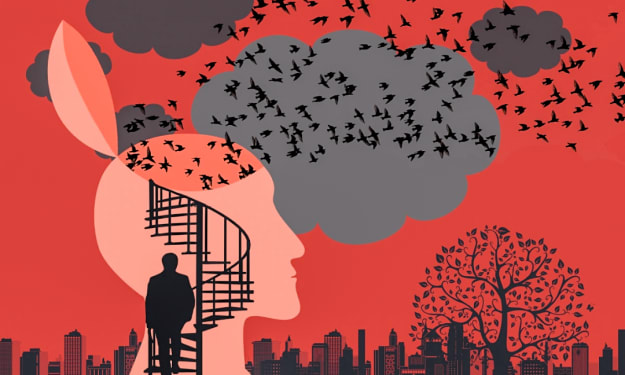Exploring the Rich Tapestry of Anthropology and Culture: Insights into Human Diversity and Evolution
Anthropology, the study of human societies and cultures, offers a fascinating journey into the diversity of human experiences across time and space. From ancient civilizations to contemporary communities, anthropologists explore the complexities of human culture, behavior, and evolution, shedding light on the myriad ways in which people adapt, innovate, and interact with their environments. In this exploration, we delve into the dynamic field of anthropology and culture, uncovering the interconnected threads that weave the fabric of human existence.

1. The Scope of Anthropology: A Multidisciplinary Perspective
Anthropology encompasses four main subfields: cultural anthropology, archaeology, biological anthropology, and linguistic anthropology, each offering unique insights into different aspects of human life. Cultural anthropology focuses on the study of contemporary cultures and societies, examining social norms, beliefs, practices, and rituals within diverse cultural contexts. Archaeology investigates the material remains of past human societies, uncovering ancient artifacts, structures, and settlements to reconstruct past lifeways and understand the dynamics of cultural change over time. Biological anthropology explores the biological and genetic aspects of human evolution and variation, studying topics such as human genetics, primatology, and forensic anthropology. Linguistic anthropology examines the role of language in shaping culture, identity, and communication, exploring how language reflects and influences social relations, worldview, and cultural diversity.
2. Cultural Diversity: Embracing the Richness of Human Experience
One of the central themes of anthropology is cultural diversity, the vast array of cultural practices, beliefs, and traditions that characterize human societies around the world. From the Arctic to the Amazon, from urban centers to remote villages, anthropologists document the unique ways in which people adapt to their environments, organize social life, and construct meaning through language, art, religion, and technology. By embracing cultural diversity, anthropologists challenge ethnocentrism and promote cultural relativism, recognizing that all cultures have value and deserve respect, regardless of their differences.
3. Cultural Evolution: Tracing the Development of Human Societies
Anthropologists study cultural evolution, the process by which human societies change and develop over time, to understand the dynamics of cultural continuity and change. Through comparative analysis of archaeological and ethnographic data, anthropologists identify patterns of cultural evolution, such as the transition from hunting and gathering to agriculture, the rise of complex civilizations, and the globalization of culture in the modern era. By examining the factors that drive cultural change, such as environmental pressures, technological innovation, migration, and contact with other cultures, anthropologists gain insights into the mechanisms of cultural evolution and adaptation.
4. Cultural Anthropology: Immersion in the Study of Human Culture
Cultural anthropology immerses researchers in the study of human culture, enabling them to gain firsthand insights into the beliefs, values, and practices of diverse societies. Ethnographic fieldwork, the hallmark method of cultural anthropology, involves living among and participating in the daily life of a community to observe and document its cultural practices and social dynamics. Through participant observation, interviews, and archival research, cultural anthropologists generate rich descriptions of culture, providing deep insights into the complexities of human behavior, social organization, and worldview.
5. Cultural Transmission: Passing on Knowledge and Traditions
Cultural transmission is the process by which cultural knowledge, beliefs, and practices are passed down from one generation to the next, shaping the continuity and identity of cultural groups. Anthropologists study the mechanisms of cultural transmission, such as oral tradition, storytelling, ritual, education, and socialization, to understand how cultural knowledge is acquired, maintained, and transformed over time. By examining patterns of cultural transmission, anthropologists gain insights into the resilience of cultural traditions and the mechanisms of cultural change in response to internal and external pressures.
6. Cultural Relativism: Challenging Ethnocentrism and Stereotypes
Cultural relativism is a core principle of anthropology that challenges ethnocentrism and promotes respect for cultural diversity. Anthropologists recognize that cultural practices and beliefs must be understood within their own cultural contexts, rather than judged by the standards of one's own culture. By adopting a culturally relativistic perspective, anthropologists seek to overcome stereotypes, biases, and misconceptions about other cultures, fostering empathy, understanding, and appreciation for the richness and complexity of human diversity.
7. Applied Anthropology: Addressing Real-World Challenges
Applied anthropology applies anthropological knowledge and methods to address real-world problems and promote positive social change. Applied anthropologists work in diverse settings such as healthcare, education, environmental conservation, international development, and community advocacy, collaborating with local communities to identify needs, develop culturally appropriate interventions, and evaluate their impact. By partnering with communities and stakeholders, applied anthropologists harness the insights of anthropology to address pressing social, economic, and environmental challenges and empower marginalized groups to achieve their goals and aspirations.
8. Conclusion: Celebrating Human Diversity and Resilience
In conclusion, anthropology offers a comprehensive framework for understanding the complexities of human culture, behavior, and evolution. From the study of cultural diversity and cultural evolution to the exploration of cultural transmission and cultural relativism, anthropology provides valuable insights into the richness and resilience of human societies across time and space. By embracing the principles of anthropology, we can celebrate the diversity of human experience, challenge stereotypes and prejudices, and work towards building a more inclusive, equitable, and sustainable world for future generations.
About the Creator
Mohamed Ali
Mohamed Ali is a passionate writer and researcher with a keen interest in exploring the complexities of human behavior and society through the lens of sociology. With a background in sociology and psychology.






Comments
There are no comments for this story
Be the first to respond and start the conversation.